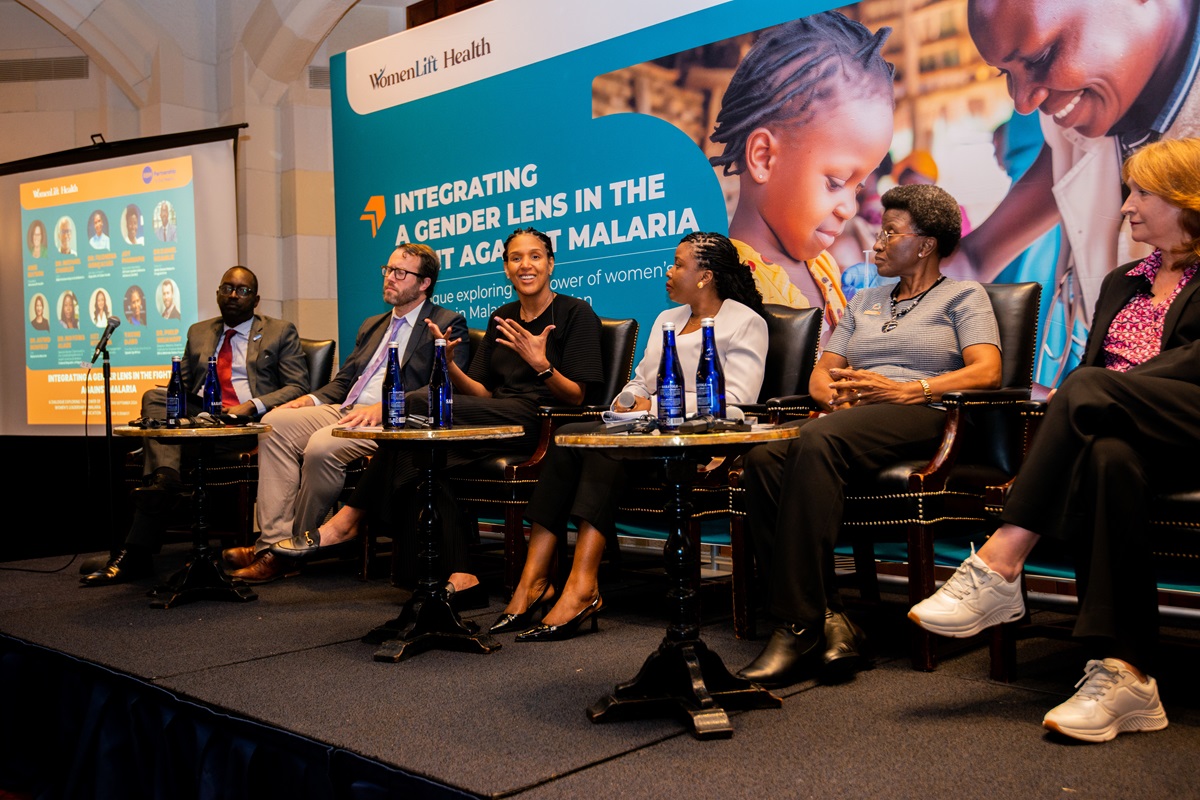27th September 2024, Yale Club, New York, NY- Stakeholders in the fight against malaria have reaffirmed the vital role of women leaders in driving efforts toward malaria eradication. Speaking during a side event at the 79th United Nations General Assembly (UNGA), hosted by WomenLift Health and the RBM Partnership to End Malaria, global health leaders underscored that gender-responsive approaches are not only critical but essential for sustainable progress in the fight against malaria and the growing threats posed by climate change.
The event, titled “Integrating a Gender Lens in the Fight Against Malaria: A Dialogue Exploring the Power of Women’s Leadership in Malaria Eradication,” brought together key stakeholders to discuss how reimagining leadership by placing more women in decision-making roles can transform global health strategies and deliver more equitable outcomes.
“When we’re talking about the fight against malaria, the approaches that have gotten us this far won’t be enough to end the disease for good,” said Dr. Michael Adekunle Charles, CEO of RBM Partnership to End Malaria. “We have to do things differently, and this includes developing gender sensitive and inclusive approaches.”
“Eradicating malaria is possible with the right leadership and strategies – collaboration and partnerships are key,” said Dr. Filomena Mendez Goncalves, Minister of Health for Cabo Verde, as she highlighted the role her father, a male ally, played in raising her into a bold woman not afraid to step into leadership. “My father, my best friend, raised me into the woman I am. Raising girls into leaders starts from home. In the public sphere, we must develop clear and transparent political measures that give women the tools they need to lead – not just because they are women, but because they are competent and capable. Now is the moment.”
The discussion highlighted the underrepresentation of women in leadership roles within the global health space, where they hold only 25% of senior leadership positions, despite making up nearly 70% of the healthcare workforce. This disparity is particularly concerning given the impact of malaria, which continues to claim over 600,000 lives annually, with women and children in marginalized communities bearing the greatest burden. Panelists pointed out that women are not only critical to the healthcare workforce but are often at the forefront of community-based interventions that address the socio-economic determinants of malaria. Yet, they remain largely excluded from key decision-making platforms.
“Malaria is not only one of the most pressing health issues of our time, but it has a disproportionate impact on women and young girls around the world, both for their health and economically,” said Amie Batson, President of WomenLift Health. “As we face challenges like drug resistance and climate change, women’s leadership will be even more essential to developing the innovative approaches and to implementing gender responsive strategies.”
Experts also addressed the increasing challenges posed by climate change, which is projected to escalate malaria transmission in endemic regions. Women leaders, particularly in vulnerable areas, are already implementing climate-resilient health interventions, but their efforts need more visibility and support.
The panel discussed innovative strategies, including the importance of ensuring equitable access to the latest malaria vaccines. Funding for malaria vaccines remains unevenly distributed, and uptake in the hardest-hit communities remains slow. It was noted that women leaders, especially those in local communities, are critical to building trust and ensuring that vaccine distribution is effective and equitable.
“Investments in women and girls result in tremendous leadership,” said Yacine Djibo, Founder of SpeakUp Africa. “Empowering, engaging and funding women-led community organizations is key to ensure more young women and girls participate in decision-making spaces that improve health.”
A powerful call to action for global collaboration was made with participants committing to strengthen partnerships that integrate gender equality into malaria elimination efforts. There was also a focus on increased investment in women’s leadership programs and climate adaptation strategies to mitigate the effects of climate change on malaria transmission.
For Media Inquiries:
WomenLift Health:
Angel Katusya
Media Relations, Cross Regional
RBM Partnership to end Malaria:
Grace Mbele
Communication Officer
RBM Partnership to End Malaria
…….END………………


